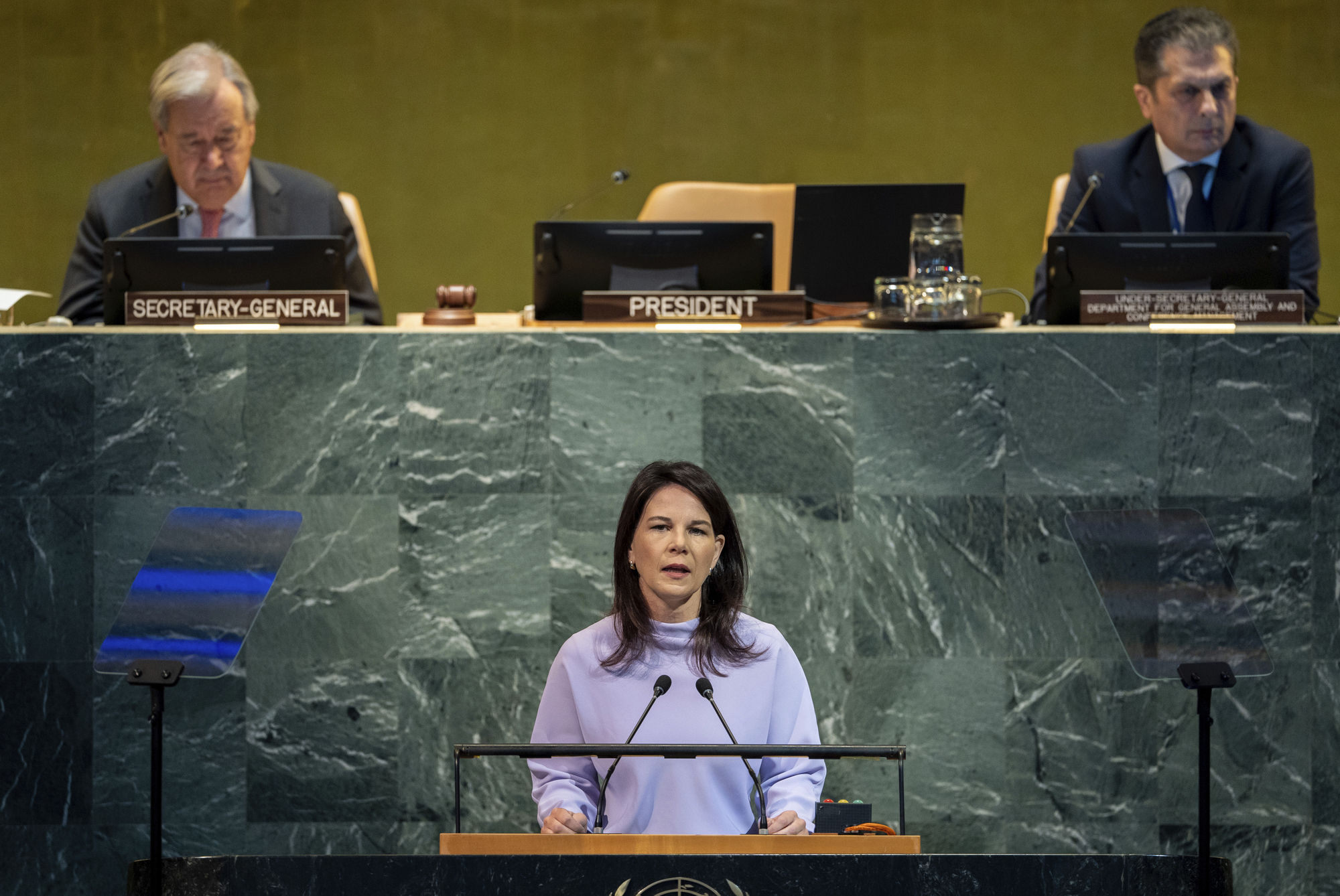World
World Leaders Meet at UN Amid Global Crises and Tensions

World leaders gathered at the United Nations on September 18, 2023, during one of the most turbulent periods in the organization’s history. The challenges they face include ongoing conflicts in Gaza and Ukraine, an evolving U.S. foreign policy, widespread hunger, and rapidly advancing technologies that pose risks without clear management frameworks. As Secretary-General Antonio Guterres articulated last week, “International co-operation is straining under pressures unseen in our lifetimes.”
This year’s session of the UN General Assembly brings together presidents, prime ministers, and monarchs from approximately 150 of the 193 member nations at UN headquarters in New York. Guterres emphasized the significance of this opportunity, stating, “We are gathering in turbulent, even uncharted, waters.” He highlighted critical issues including climate change, the rapid pace of new technologies, and the widening inequality across the globe.
During the opening commemoration of the UN’s 80th anniversary, General Assembly President Annaleena Baerbock remarked that the world stands at a critical juncture reminiscent of the post-World War II era, urging leaders to demonstrate that collaboration can lead to positive outcomes. “Today is not about celebrating,” she asserted, reflecting the gravity of the current global situation.
Guterres plans to utilize over 150 scheduled one-on-one meetings with leaders and ministers to encourage dialogue, bridge existing divides, and pursue pragmatic solutions. He expressed the need for leaders to deliver tangible progress rather than merely engaging in “posturing and promises.” Yet, observers of the UN are skeptical about the potential for meaningful advancements, particularly in a world marked by deep polarization and ongoing conflicts in Gaza, Ukraine, and Sudan.
The issue of Palestine is expected to dominate discussions, particularly during a high-level meeting on implementing a two-state solution to the Israeli-Palestinian conflict, co-chaired by France and Saudi Arabia. Palestinian Ambassador to the United Nations Riyad Mansour noted that “Palestine is going to be the huge elephant in this session of the General Assembly.”
This meeting gains significance as the Trump administration previously denied a U.S. visa to Palestinian President Mahmoud Abbas, preventing him from attending the General Assembly. On September 15, the General Assembly passed a resolution allowing Abbas to address the assembly via video, similar to the arrangement made for Volodymyr Zelenskyy last year following Russia’s invasion of Ukraine. Zelenskyy is attending this year’s assembly in person, and the Security Council is scheduled to convene on Ukraine on September 19.
Earlier in September, the General Assembly overwhelmingly supported a two-state solution and called for Israel to commit to establishing a Palestinian state. In a counterstatement, Israeli Prime Minister Benjamin Netanyahu declared, “There will be no Palestinian state,” adding to the already complex dynamics at play.
As the UN General Assembly unfolds, the world watches closely, hoping for progress on critical global issues, even as significant challenges loom on the horizon.
-

 Top Stories2 weeks ago
Top Stories2 weeks agoTributes Surge for 9-Year-Old Leon Briody After Cancer Battle
-

 Entertainment2 months ago
Entertainment2 months agoAimee Osbourne Joins Family for Emotional Tribute to Ozzy
-

 Politics2 months ago
Politics2 months agoDanny Healy-Rae Considers Complaint After Altercation with Garda
-

 Top Stories1 week ago
Top Stories1 week agoNewcastle West Woman Patricia Foley Found Safe After Urgent Search
-

 Top Stories1 month ago
Top Stories1 month agoIreland Enjoys Summer Heat as Hurricane Erin Approaches Atlantic
-

 World2 months ago
World2 months agoHawaii Commemorates 80 Years Since Hiroshima Bombing with Ceremony
-

 Top Stories2 months ago
Top Stories2 months agoFianna Fáil TDs Urgently Consider Maire Geoghegan-Quinn for Presidency
-

 World2 months ago
World2 months agoGaza Aid Distribution Tragedy: 20 Killed Amid Ongoing Violence
-

 World2 months ago
World2 months agoCouple Convicted of Murdering Two-Year-Old Grandson in Wales
-

 Top Stories2 months ago
Top Stories2 months agoClashes Erupt Between Far-Right Groups and Migrants in Spain
-

 World2 months ago
World2 months agoAristocrat Constance Marten and Partner Convicted of Infant Murder
-

 Top Stories2 months ago
Top Stories2 months agoHistoric Dalkey Pub The Queens Reopens Under New Management









